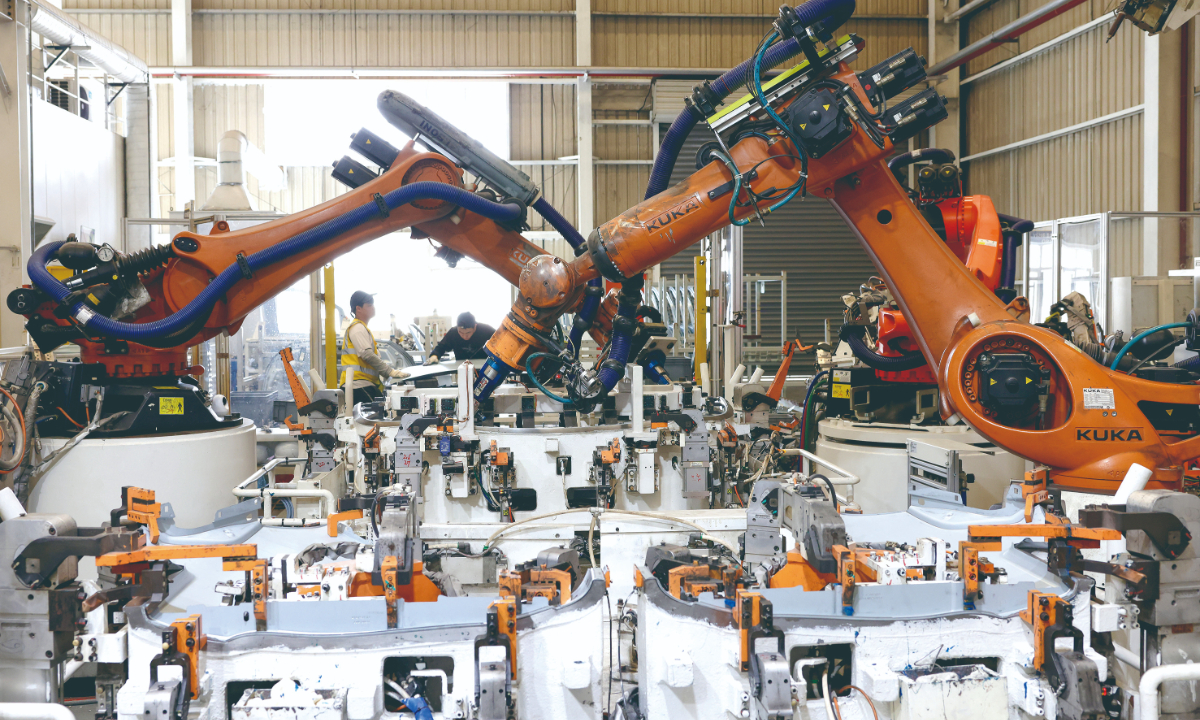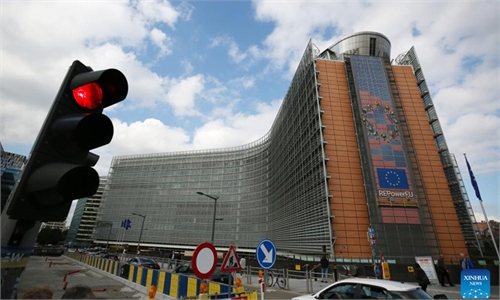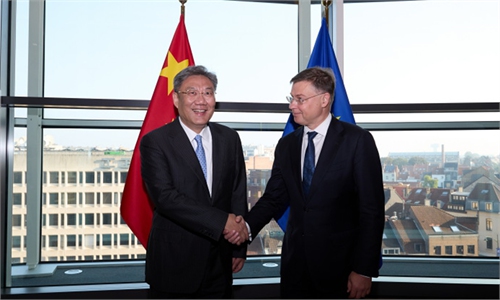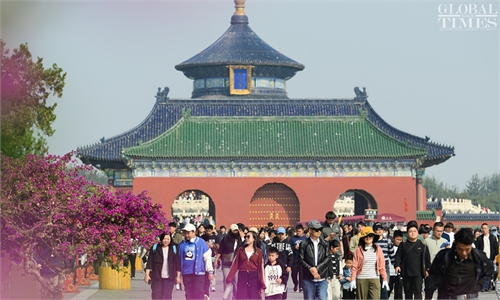
An intelligent production line of EV components in Fuzhou, East China's Fujian Province Photo: VCG
China's Ministry of Commerce (MOFCOM) announced on Tuesday that it has submitted a consultation request to Turkey at the WTO over Turkey's additional tariffs and import license measures against electric vehicles (EVs) and other vehicles.
In a statement, a spokesperson for MOFCOM said that Turkey's additional tariffs and import license restrictions are discriminatory and violate WTO rules, and amount to typical protectionist practice.
"We urge Turkey to abide by its relevant commitments at the WTO and immediately correct its wrong action," the spokesperson said, adding that "China will take all available means to safeguard the legitimate rights and interests of domestic industries."
Turkey has imposed an additional tariff of 40 percent as well as import license restrictions on EVs and other vehicles imported from China, reports said.
The Turkish move was aimed at protecting its domestic carmakers and halting a possible deterioration of the country's current account balance, Reuters reported in June. The additional tariff was set at a minimum of $7,000 per vehicle, according to the report.
The move has drawn harsh criticism from the Chinese side. Following Turkey's announcement in June, MOFCOM said that the Turkish tariffs were only imposed on passenger vehicles from China, which constitutes discrimination against Chinese products and seriously violates the principle of most-favored-nation treatment.
"China expresses strong dissatisfaction and firm opposition to this," a MOFCOM spokesperson said at the time, noting that the move undermines cooperation between companies in the two countries. It also exacerbates Chinese firms' concerns over Turkey's business environment, hurts their confidence in investing in Turkey, and will ultimately result in more losses than gains, the spokesperson said.
In July, however, the Turkish government said the additional tariffs on imported Chinese EVs would be eased, and that carmakers making investments in the country would be given an exemption from the tariffs, Turkish news outlet the Daily Sabah reported at the time, citing a presidential decree.
The report said that Turkey has long been trying to attract carmakers to invest in the country, especially Chinese companies.
Global Times



